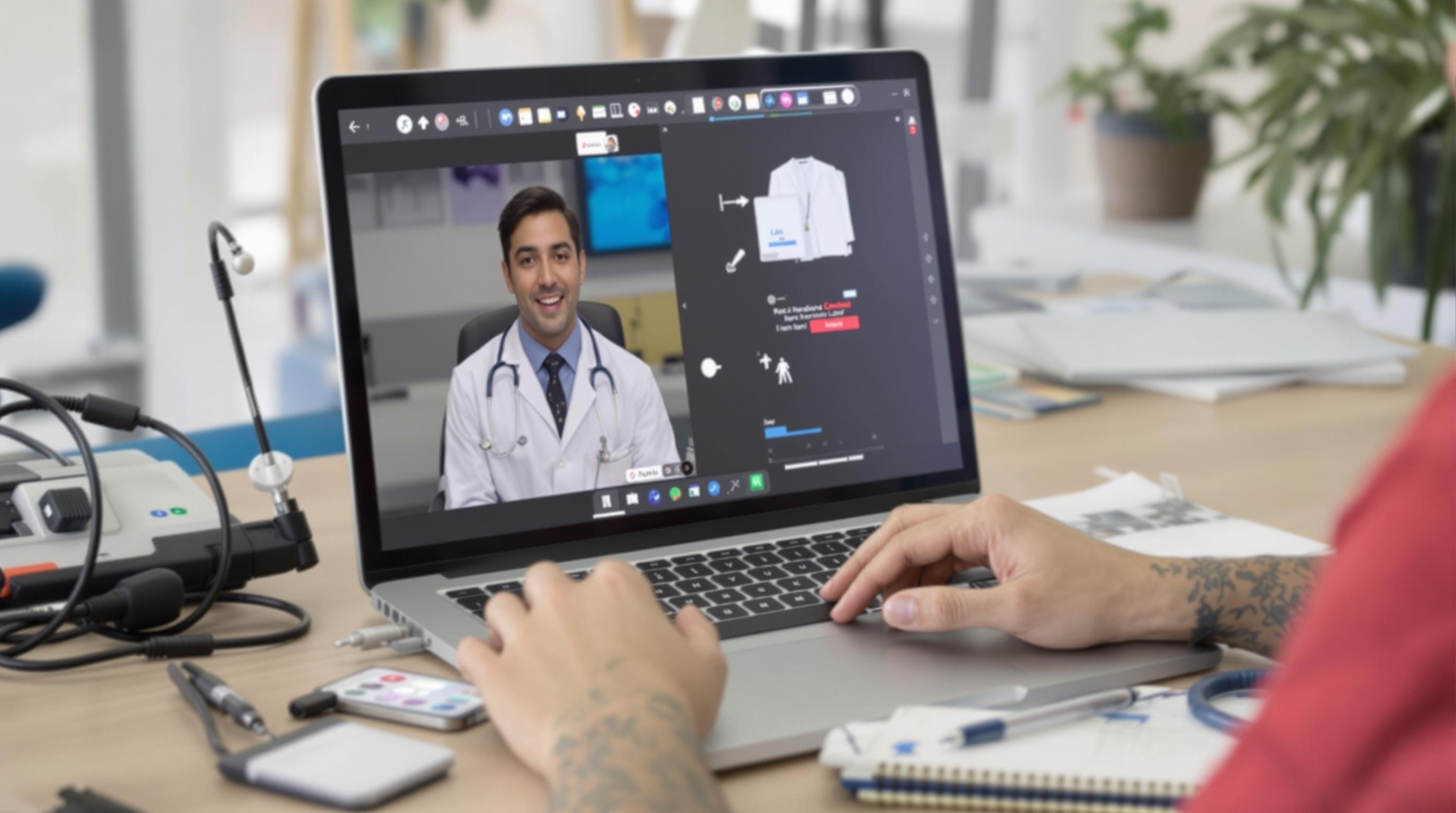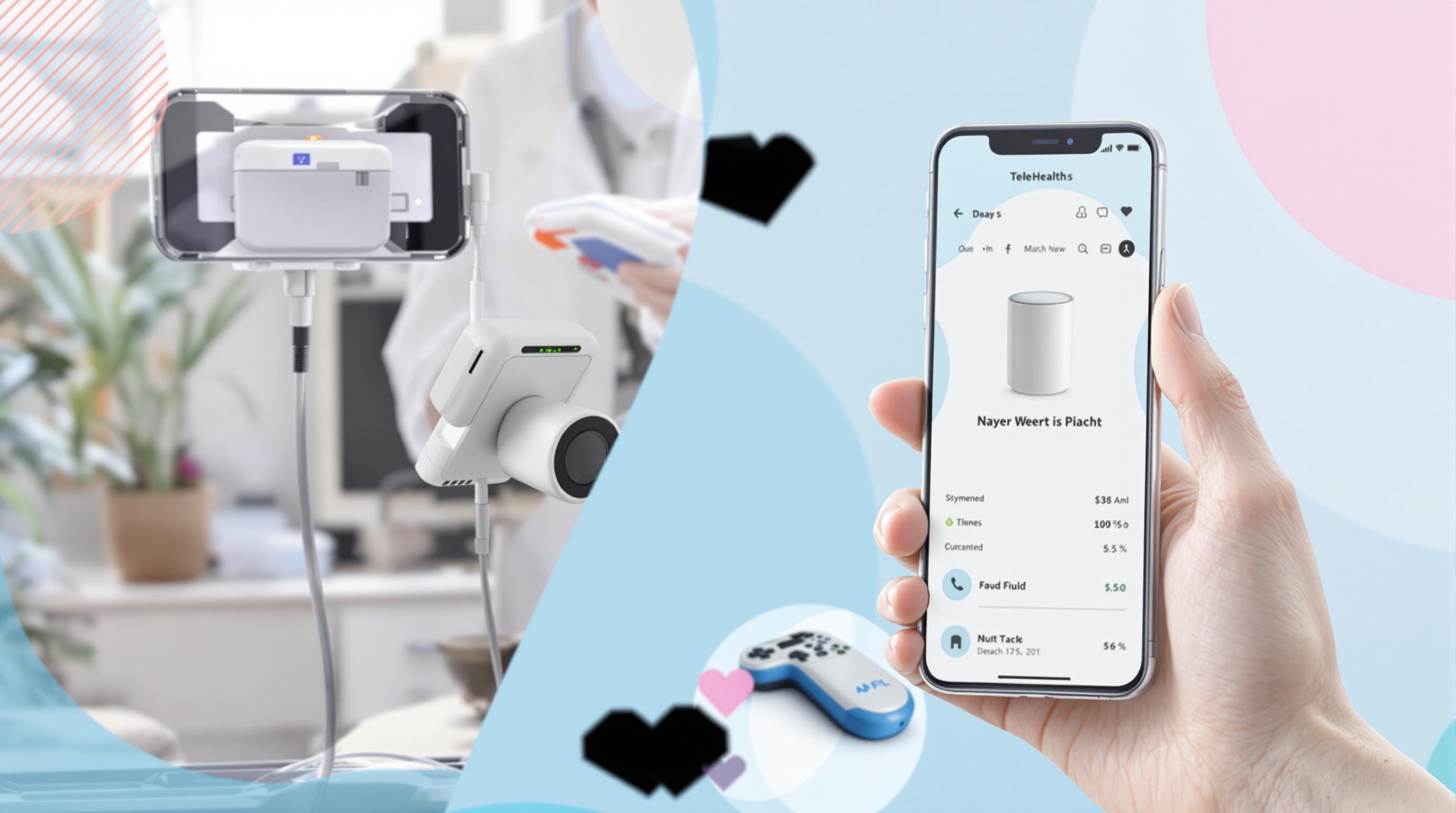Related Articles
- The Unexpected Impact of Environmental Factors on the Accuracy of Medication Dispensing Technologies
- Exploring the Influence of Mental Health Stigma on Accessibility and Affordability of Coverage in Modern Insurance Plans
- How Cloud Storage Quirks Are Quietly Complicating Patient Data Protection in Modern Healthcare Settings
- Top 6 Emerging Medical Billing Platforms Revolutionizing Practice Revenue Cycles Since 2019
- When Digital Distance Deepens Divide: Surprising Social Costs of Remote Health Services in Underserved Communities
- The Unexpected Role of EHR Usability in Physician Burnout and Strategies to Reclaim Workflow Balance
Top 7 Next-Gen Virtual Care Platforms Launched Since 2022: In-Depth Comparison and Ranking
Top 7 Next-Gen Virtual Care Platforms Launched Since 2022: In-Depth Comparison and Ranking
Top 7 Next-Gen Virtual Care Platforms Launched Since 2022: In-Depth Comparison and Ranking
Introduction to Next-Gen Virtual Care Platforms
The healthcare landscape has undergone a significant transformation with the rapid development of virtual care platforms. Since 2022, the digital health market has embraced next-generation solutions designed to enhance patient experience, improve provider workflows, and deliver high-quality care remotely. These platforms harness advances in AI, telemedicine, and data analytics to transcend traditional care barriers.
In this article, we explore the top seven virtual care platforms launched since 2022, offering an in-depth comparison based on features, usability, security, and adoption. Our ranking seeks to assist healthcare professionals, organizations, and patients in navigating this evolving marketplace, providing clarity on which solutions stand out.
Our analysis is grounded in various reports, user reviews, and market analysis up to mid-2024, including insights from sources like HIMSS, Healthcare IT News, and industry whitepapers. With this foundation, let us delve into the standout platforms setting new standards in virtual care.
1. Amwell OnDemand 2.0
Amwell, a pioneering telehealth provider, launched its OnDemand 2.0 platform in late 2022 as an upgraded virtual care solution focusing on real-time communication and enhanced AI triage capabilities. The platform integrates with EHR systems seamlessly, enabling providers to access patient data smoothly during consultations.
A major strength of OnDemand 2.0 lies in its intuitive user interface for both patients and clinicians, streamlining appointment scheduling, video visits, and follow-up care. The platform leverages AI-driven symptom checkers that reduce wait times and improve triage accuracy, boosting clinical efficiency.
Security remains a priority, with HIPAA-compliant encryption and extensive user authentication protocols. However, some users have noted intermittent connectivity issues in low-bandwidth environments. Overall, Amwell OnDemand 2.0 earns high marks for scalability and integration capabilities, making it a top choice for large healthcare systems.
2. Teladoc Health Nexus
Teladoc Health Nexus, launched in early 2023, emphasizes personalized virtual care through data analytics and remote patient monitoring. The platform supports chronic disease management by integrating biometric devices and continuously feeding data back to providers in real time.
One of Nexus’s key differentiators is its robust AI algorithms that recommend tailored care plans and flag potential health risks before they escalate. Patient engagement features include medication reminders and interactive health coaching, designed to improve adherence and outcomes.
While Teladoc Health Nexus offers advanced capabilities, its complexity may pose initial onboarding challenges for smaller practices. Nevertheless, its rich feature set and focus on preventive care have led to strong adoption, particularly in integrated health networks as reported by Healthcare IT News.
3. Babylon Health Connect
Babylon Health Connect launched its revamped virtual care platform in mid-2022, focusing on an AI-first approach to diagnostics and consultation. It employs a natural language processing engine to conduct initial patient interviews and provide instant preliminary assessments.
The platform supports multilingual capabilities and is designed for accessibility in underserved regions, a strategic move reflecting Babylon's global ambitions. Real-time physician consultations complement the AI assessments, delivering comprehensive care virtually.
Critics have praised Babylon Connect for reducing barriers to access while cautioning about the need for continuous clinical oversight on AI recommendations. The platform remains a trailblazer in delivering scalable, AI-integrated telemedicine with an emphasis on global health equity.
4. MDLIVE RapidCare
MDLIVE RapidCare, released in early 2023, targets urgent care needs with a minimalistic and responsive platform that delivers 24/7 access to board-certified physicians. Its design prioritizes quick symptom input and rapid physician matching to reduce time-to-care significantly.
The platform offers robust integration with pharmacy services and electronic prescriptions, facilitating immediate treatment initiation. Users appreciate its straightforward navigation and reliable video quality even on mobile networks.
While its scope is narrower compared to broader chronic care platforms, MDLIVE RapidCare excels in acute care scenarios. Its reliable performance and affordability have made it popular among employers seeking virtual urgent care options for employees.
5. Kareo Virtual Clinic
Kareo Virtual Clinic emerged in mid-2023 with a focus on small to mid-sized practices, offering an affordable yet feature-rich virtual care solution. It blends telehealth visits with practice management tools to support clinical scheduling, billing, and patient communications.
The platform's interoperability with popular EHR systems enhances workflow without overwhelming smaller practices with excessive complexity. Providers can access integrated analytics and patient feedback dashboards that aid in quality improvement efforts.
Although Kareo Virtual Clinic may lack some of the advanced AI features found in larger platforms, its pragmatic approach and focus on ease of use have earned it considerable goodwill among independent providers looking to digitize care delivery.
6. Cisco Health Cloud
Launched at the end of 2022, Cisco Health Cloud brings the technology giant’s networking and security expertise into the virtual care domain. The platform offers ultra-secure, scalable telehealth services tailored for large hospital systems and public health agencies.
Its standout feature is end-to-end encrypted video consultations backed by Cisco’s industry-leading network infrastructure, assuring minimal downtime and compliance with rigorous security standards. The platform also supports AI-powered workflow automation to streamline care coordination.
Cisco Health Cloud primarily appeals to enterprise clients needing customizable solutions capable of handling high volumes of virtual visits. Its price point reflects this premium positioning but offers unmatched reliability and compliance assurances in return.
7. Livi Advanced Care
Livi Advanced Care launched in early 2024 as a patient-centric virtual platform emphasizing convenience and holistic health management. It integrates behavioral health counseling alongside traditional medical consultation to deliver comprehensive care.
With an emphasis on user engagement, Livi uses AI-driven health insights and reminders to keep patients actively involved in their care journeys. The mobile app provides a seamless experience with an emphasis on accessibility and user-friendly design.
The platform is gaining traction in European markets and is expanding rapidly due to its inclusive approach and strong provider partnerships. Its combination of physical and mental health services positions it as a forward-thinking model for next-generation virtual care.
Ranking and Comparison of Features
Ranking these seven platforms requires balancing their core strengths against specific use cases. Amwell OnDemand 2.0 leads in integration and scalability for large systems, while MDLIVE RapidCare excels for urgent care needs in an affordable, easy-to-use format.
Teladoc Health Nexus and Babylon Health Connect stand out for their AI-driven personalized care and global reach, though Nexus may be more suited to chronic disease management while Babylon targets initial assessment and accessibility. Kareo Virtual Clinic fills the niche for smaller providers needing simple, pragmatic solutions.
Cisco Health Cloud impresses with its top-tier security and enterprise readiness, making it ideal for hospitals requiring robust infrastructure. Livi Advanced Care’s holistic, patient-centered model is an emerging favorite for integrated behavioral and physical health services. The choice depends on an organization’s priorities, budget, and patient population.
Conclusion and Future Outlook
The next generation of virtual care platforms launched since 2022 demonstrates how technology continues to redefine healthcare delivery. From AI-powered diagnostics to seamless EHR integration and enhanced security, these platforms sharpen focus on accessibility, quality, and patient engagement.
As virtual care becomes embedded in routine medical practice, healthcare providers must select platforms that align with their operational needs and patient demographics. The seven platforms reviewed here provide diverse options spanning urgent care, chronic disease management, and comprehensive telehealth.
Looking ahead, trends such as deeper AI integration, expanded remote monitoring, and enhanced interoperability will drive evolution. Healthcare innovation remains relentless, and choosing the right next-gen virtual care platform is key to future-proofing care delivery while elevating patient outcomes.





